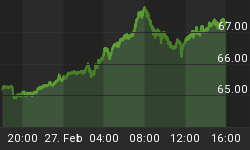Is this the moment we’ve been waiting for? The moment bitcoin goes mainstream? Intercontinental Exchange (ICE), the owner of 23 exchanges, including the world’s largest, the New York Stock Exchange, is opening a bitcoin platform called Bakkt. And many are heralding the venture as cryptocurrency’s saving grace.
Bakkt’s primary goal in its (presumed) November launch is to open the door to institutional investors. Yes, the same institutional investors that were supposed to save bitcoin when CME launched BTC futures. But this time, it’s different. Maybe.
The vision behind the project is grand. A fully regulated exchange involving real bitcoin in pension funds, mutual funds, ETFs and more. But it doesn’t stop there.
ICE has also teamed up with Microsoft and Starbucks to bring Bakkt into the real world. Leveraging Microsoft’s Azure cloud and Starbucks’ abundant source of caffeine, Bakkt is looking to facilitate the transfer of bitcoin in day-to-day transactions.
Kelly Loeffler, ICE’s head of digital assets and the upcoming CEO of Bakkt explained, “We are collaborating to build an open platform that helps unlock the transformative potential of digital assets across global markets and commerce.”
How will Bakkt work?
The exchange will operate in a similar fashion to the current cash market. Bitcoin will be traded in ‘one day futures’ contracts. The broker or dealer would simply place an order for their client, and by the end of the trading day, the ICE clearing house will send the cash or bitcoin to where it needs to go.
These clients can be anyone. From money managers or institutions controlling mutual funds to retail investors looking to gain exposure to bitcoin.
Clients will entrust their private keys to the exchange, which will store them in a ‘heavily guarded’ warehouse. This is supposedly their secret to combating the rampant hacking which has cost other exchanges billions.
The real innovation, however, is in a new architecture built specifically for Bakkt. Operating in a similar fashion to the Lightning Network, Bakkt has created an off-chain system that will allow trades to occur on an institutional scale, meaning any transactions occurring inside the warehouse will not be settled on the blockchain. The only time any transaction hits the blockchain is when it is coming into or leaving the warehouse. Related: The Last Frontier For Artificial Intelligence
“Our system would operate on a layer above the blockchain, and we’d keep our own omnibus ledger apart from the blockchain,” explains Loeffler.
This system is actually the core feature of its larger-scale ambitions.
With its own “lightning network” solution, and the liquidity provided by Wall Street investors, Bakkt could act as a solution for merchants and global businesses, allowing them to bypass brokers and banks, and in turn, the fees associated with credit card processing or currency exchange,
Jeff Sprecher is excited about the idea. He says, ”Bitcoin would greatly simplify the movement of global money,” adding “It has the potential to become the first worldwide currency.”
Is Bakkt too centralized?
The need for decentralization is one of the fundamental beliefs in the cryptocurrency community, and it is essentially what the entire system was built upon.
Abhishek Punia, a crypto analyst with Draper Associates explains: “A regulated exchange with a custodian in the middle contradicts the basic idea of Bitcoin,” adding “Bitcoin was designed to be decentralized, without intermediaries taking fees. A regulated exchange may be popular for a short period of time, but it’s not the future. The future will be the original idea of a peer-to-peer network.”
Fees and custodians aside, the bottom line is that people just don’t trust the current system.
Jeff Sprecher said it himself, “Millennials don’t trust traditional financial institutions.”
And for good reason.
Traditional financial institutions have paid billions in fines in just the last few years for defrauding and abusing customers. Wells Fargo alone has been hit with scandal after scandal, from overcharging small businesses to modifying mortgage and auto-loans without customer permission, resulting in millions in fees on unsuspecting customers.
But is ICE really the answer?
The NYSE is most certainly a ‘traditional; financial institution’ and it has paid the penalties for its missteps to prove it.
In 2018, the NYSE and its sister exchanges were fined $14 million by the SEC for a number of infractions, including practices which favored floor brokers over customers. Over the course of 7 years, brokers were able to identify hidden liquidity in two order types which wasn’t disclosed to customers.
Related: Google Accepts Chinese Censorship For Big Payout
ICE’s official statement on the matter read: “We believe this settlement is in the best interest of the NYSE Exchanges. We take our regulatory obligations seriously and remain focused on building and maintaining industry-leading technology and ensuring that our markets operate with the utmost integrity.”
So, is it really the moment we’ve been waiting for?
This time, there’s actually going to be bitcoin changing hands, kind of. This time, commercial retailers will be able to accept bitcoin, maybe. This time, they’re going to follow the rules, hopefully.
ICE’s entry into the bitcoin world is certainly poised to make waves, but skepticism still runs high. Even the company’s partner in the venture, Starbucks, won’t actually be accepting bitcoin any time soon.
“It is important to clarify that we are not accepting digital assets at Starbucks. Rather the exchange will convert digital assets like Bitcoin into US dollars, which can be used at Starbucks,” a spokesperson wrote in emailed comments to Vice.
Ideally, the implementation of new services associated with bitcoin should bring more interest into the space, but if previous announcements hold any weight, investors and enthusiasts shouldn’t hold their breath.
By Michael Kern via Crypto Insider
More Top Reads From Safehaven.com
















